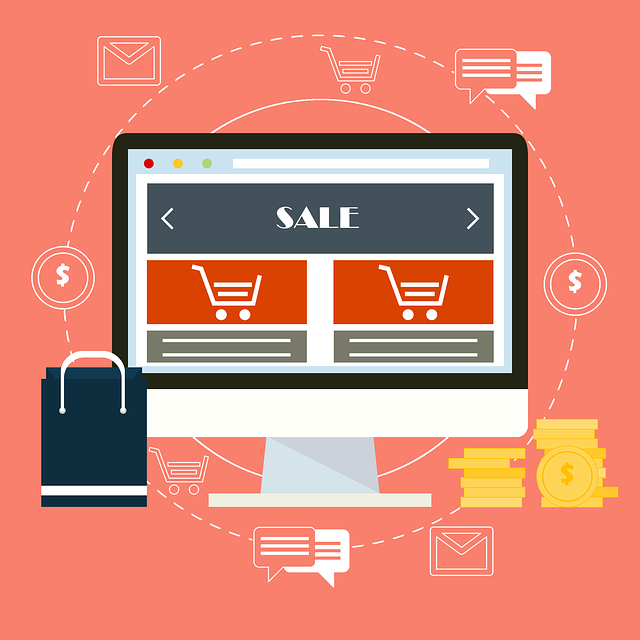
As online retailers incorporate blockchain technology into their business processes, they give their customers redeemable bonus points when they reach certain spending thresholds. A network of computers known as nodes, miners, or peers maintain their blockchains by validating and transferring data about digital transactions and the movement of cryptocurrencies from one network user to another.
By using blockchain to track its supply chain, an e-commerce company can ensure that suppliers adhere to criteria, commit not to replace products without notice, and ensure transparency in maintaining the process. A single breach of data can cost an e-commerce retailer millions in revenue and much more brand expertise and blockchain provide a level of security that retailers can not afford. By capturing transactions along the chain and granting rebates and rewards to customers when they reach purchase thresholds, blockchain-based loyalty program management makes them faster and safer.
Blockchain – E-commerce secures the security of millions of users of private and confidential e-commerce platforms. Blockchain is based on Distributed Ledger Technology (DLT) which offers a greater level of security than what is available in online databases and platforms. Blockchain-based distributed ledger technology is based on DLT, which provides the highest security available in any online database or platform.
E-commerce sellers rely on leading bitcoin and a host of other cryptocurrencies to leverage low-cost digital payment solutions. One of the biggest advantages of blockchain technology is that it allows retailers to combine services such as payment processing, inventory management, product descriptions, etc. For retailers, blockchain software development enables them to handle transactions such as payment processing, product search and purchase, customer service, and securing digital assets.
Blockchain e-commerce companies can combine inventories management, payment processing, product descriptions, images, and other business activities. Distribution services, enabling loyalty programs, tracking transactions records, constructive criticism, and feedback, and efficiency are just some of the many benefits blockchain development brings to retail and e-commerce businesses. Smart contracts, Ethereum-based transactions, supply chain tracking (hyper ledgers), records, inventory management, better supplier relations, and better traceability of medicines such as medical marijuana in traditional retail are just some of the hurdles retailers face when they test blockchain deployment in their processes.
Blockchain-based technology is predicted to be a major disruption in many business applications and processes with a huge impact on e-commerce. Companies are exploring a range of blockchain-based e-commerce startups to improve brand management systems for retailers, secure international trade flows, reduce ubiquitous fees associated with financial transactions, and reinvent loyalty programs. This blog will discover innovators who are considering the implementation of blockchain technology solutions and e-commerce platforms in the development and development of the retail market.
Blockchain technology for E-Commerce Ethereum is a platform for e-commerce brands that want to manage their blockchain and bitcoin cryptocurrency, which led to the development of Blockchain technology that allows customers to make purchases locally and through apps accepting Bitcoin payments. The benefits of blockchain for e-commerce go beyond cheaper business processes, better security, and an improved customer experience. The most common blockchain technology in e-commerce is Ethereum, which provides a platform for e-commerce brands that want to manage their blockchains and bitcoin cryptocurrencies.
Ethereum provides a convenient platform for e-commerce sites that want to manage their blockchains. It is obvious that within a few hours, a blockchain-based e-commerce platform is needed to promote an improved and reliable online shopping experience.
Blockchain, a decentralized and distributed ledger technology, gives platform users the right and responsibility to own and protect their data without relying on a central authority, without sacrificing data integrity, security or theft. E-commerce brands can manage sensitive consumer information with the utmost security by leveraging the decentralized cryptographic architecture of blockchain ledgers. Blockchain is a distributed ledger technology that gives platform users the rights and obligations to own and protect their data without relying on a central authority and without sacrificing integrity and security theft.
For example, OpenBazaar is a blockchain-based marketplace system with multiple sellers and there are many ways to add technology to traditional online shopping marketplaces with multiple stores. Companies are exploring a range of e-commerce startups using blockchain technology to bolster retailers’ “reputation management, secure the flow of international trade, reduce the ubiquitous fees associated with financial transactions, and reinvent commercial loyalty programs.
Market is a blockchain-based online e-commerce marketplace aimed at small businesses looking to tap the digital retail space, enabling them to post products and accept payments in cryptocurrency such as Ethereum. MCART Protocol is a decentralized influencer marketing and attribution platform made possible by blockchain technology. It serves as a customizable solution for brands and influencers who want to launch marketing campaigns in a purchasable marketplace. RetailGlobal is a blockchain-enabled global trading platform that brings together players from the local and international e-commerce landscape.
Blockchain offers many other benefits, including cost reductions, improving transaction business processes, and improving the overall customer experience. The introduction of blockchain technology into the supply chain will help users track orders and buy online. Alibaba’s cloud blockchain technology and its TMALL e-commerce platform allow users to track TMALL and their orders from luxury pavilions.
This allows the platform to offer its users unlimited cash and recoins based on ecosystem purchases of goods and services, resulting in financial rewards for the buyer. Tradove is a blueprint for corporate networks in the digital age and enables an e-commerce marketplace where users can sell and buy using cryptocurrencies.

